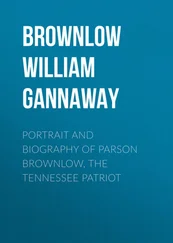Several times between 1763 and 1766 the elder Pitt was asked to return to head the King’s government and refused to do so. By 1763, the King’s mentor and friend, the Earl of Bute, had discovered he had neither the aptitude nor the appetite for day-to-day politics, and resigned. King George III thus learnt at an early stage of his reign that he had to work with at least some of the politicians already available in Parliament rather than invent new ones, and that an effective Minister whom he partly disliked could be a better bet than an ineffective one he doted on. Several years of political instability now followed. The government was at first headed by George Grenville, Hester’s brother, who after a short time the King cordially hated and wanted rid of. Next came the Marquis of Rockingham, who did not have the parliamentary support to sustain an administration. Throughout this time, the elder Pitt reverted to his earlier behaviour of being a trenchant critic of Ministers, except that he now did so from a far more commanding position, that of a former head of the government. He broke off occasionally from his rural pursuits and the education of his children to go down to the House of Commons and thunder out his denunciation of the government, first attacking the Treaty of Paris, which brought an end to the Seven Years’ War, for being too generous to the nation’s enemies, then making no fewer than fifteen speeches attacking the handling of the case of John Wilkes, and then a determined campaign to overturn George Grenville’s Stamp Act. The Stamp Act was a tax on legal documents in North America, introduced by Grenville as a means of raising revenue from the colonists, who enjoyed the protection of the British army but paid nothing towards it. It was deeply hated in America, and the elder Pitt was determined to overturn it, advocating conciliation of the colonies rather than aggravation of their discontent. Grenville having been forced from office, and the Stamp Act being overturned in early 1766, Pitt was once again acclaimed by the City and the crowds outside the Palace of Westminster. He was not in the least troubled that in pursuing this campaign he was also destroying the policies and administration of his brother-in-law.
The young William would certainly have heard of the devastating use his father had made of the power of speech on these occasions, and he is likely to have witnessed for himself his father’s repeated decisions to refuse to take office unless given cast-iron authority over the government. The King could offer the leadership of an administration, but Pitt could refuse it. On one occasion in 1765 the Duke of Cumberland arrived at Hayes with an escort of guards, a Royal Duke sent personally by the King to invite the elder Pitt to form a government. We do not know if William was watching from the windows, but we do know that his father declined the offer, since ‘nothing was conveyed that might have for object or end anything like my settling an administration upon my own plans’. 30Being in office, his father knew, was not the same as being in power. Eventually, the only stumbling block to Pitt’s return was the refusal of another brother-in-law, Richard, Earl Temple, to serve with him. But later in 1766 Pitt did indeed form a government and included in it most of the people he wanted. Protracted negotiation with the King was evidently worth it, a lesson not lost on his son, who was to be offered the premiership four times before accepting it.
It was at this stage that the elder Pitt made a major mistake. On becoming the King’s First Minister he also accepted an earldom, ‘Viscount Burton Pynsent and Earl of Chatham in the County of Kent’. In all probability, he wanted to set up his family as one of the great families of the land. He already had the estate. The next step was the title, and this was the great opportunity to acquire it. He was also tired and of course frequently ill, preferring to preside over an administration from the more genteel House of Lords without the endless knockabout of the Commons. The consequences were disastrous, according to the poet Thomas Gray the ‘weakest thing ever done by so great a man’. 31At a stroke, the Great Commoner was no more. The man whose reputation had partly rested on being apart from the landed aristocracy had joined it, and the man highly regarded for his independence from the King had accepted the generous patronage of the Crown. It did immense damage to his support around the country, which had always been his strongest card. Worse still, in practical terms it disabled his government from the outset in the House of Commons, where his oratorical skills were no longer available. One Minister resigned rather than face the additional workload and stress that would result. Chatham compounded all this by taking the title Lord Privy Seal rather than First Lord of the Treasury, again to lighten his burden but thereby omitting to control the central function of his government. It is unlikely that these mistakes were lost on his son. There is no evidence of what he thought about them, but throughout his career he steered well clear of repeating them.
The energy of Chatham’s administration was spent within a few months, and so was his own. According to Admiral Keppel, later a celebrated naval and political figure: ‘He [Chatham] governs absolutely , never deigns even to consult any of the Ministers, is now at Bath, and all business is at a stop.’ 32William watched his father retreat into illness, possibly into what would later be called manic depression. From the spring of 1767 he became an invalid, refusing to handle the business of government or to see more than a few chosen people, despite being supposed to be in charge of the country. This situation lasted for eighteen months until the King finally and reluctantly accepted that Chatham could not continue. Again there is no direct account of what young William thought of his father’s illness or what effect it had on him. We do know of the patience, loyalty and sheer endurance displayed by his mother. Coping calmly with the dire illness of the man she loved, Hester also dealt personally with the incoming correspondence from Cabinet Ministers and even the King. It would be an exaggeration to say that she was running the government, which now lost its central direction, but she was highly effective at preventing the government from running her husband. It is unlikely that the sight of his mother dealing with all the great potentates of the nation did not make some lasting impression on William. Not only could his father be the master of other politicians, but his mother proved rather effective at it as well.
William Pitt lived through all these events, with enough knowledge to make some sense of them, before he was ten years old. They do not seem to have disturbed his studious mind or happy disposition, but they would certainly have demonstrated to him that there need be no limit to his ambition.
*In the eighteenth century a British Cabinet contained two Secretaries of State (compared to fifteen today). The Secretary of State for the Southern Department dealt with matters relating to southern European countries, including France and Spain; the Secretary of State for the Northern Department dealt with northern European countries such as Russia. In 1782 this arrangement was revised into one Secretary of State for Foreign Affairs and one for Home and Colonial Affairs.
*Old Sarum, near Salisbury, was to become the most famous of all rotten boroughs when early in the nineteenth century it continued to return two Members of Parliament while ceasing to have any voters at all. In 1728 Colonel Harrison, the Pitt nominee, defeated Henry Fox in a by-election by a four to one margin, literally four votes to one.
*The Royal Family were Hanoverians by descent. In this period the King of England was also the hereditary ruler (Elector) of Hanover.
Читать дальше












